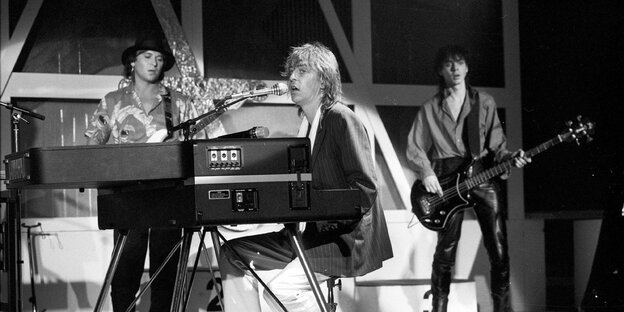In “Music is a Weapon,” Philip Meinhold tells the story of the band. Using research and celebrities, he explores what makes his work so timeless.

Reiser River in 1986 Photo: imago
Probably many people can hardly answer the question: “When did you first hear clay, stones and fragments?” The fashionable question “What did that do to you?” maybe it does. Anyone who listens to the music of the West Berlin group will not forget them. He still moves her, to the point of tears and the feeling of wanting to rebel.
In the podcast “Music is a Weapon”, author, journalist and experienced podcaster Philip Meinhold tells the story of the legendary band using original recordings, his own research and with famous guests such as Herbert Grönemeyer, Danger Dan and Marianne Rosenberg and tries to discover why his work has aged so well.
One possible explanation comes from his first manager, Nikel Pallat, famous for his 1971 talk show appearance where he broke the table with an ax in protest against the capitalization of political culture.
“Destroy what destroys you” – the legendary song had already been recorded and was a hit. The size, strength and impact of the texts arose from the fact that they were “heard” by ordinary people, as Pallat says. Whether workers, youth, prisoners, it is their phrases that Rio Reiser and RPS Lanrue turned into songs and that to this day make the sound seem more lively than embarrassing.
“Music is a weapon.“, four episodes in the ARD audio library
Many of the contemporary witnesses and celebrities say in the podcast that Ton, Steine, Scherben was the most influential German group of the 20th century because they showed that you can make rock music from German lyrics. But they were also the only German group that inspired and accompanied the leftist movements like no other in their ups and downs. The podcast also provides a lot of excellent material for this statement. And of course, plenty of driving sound.